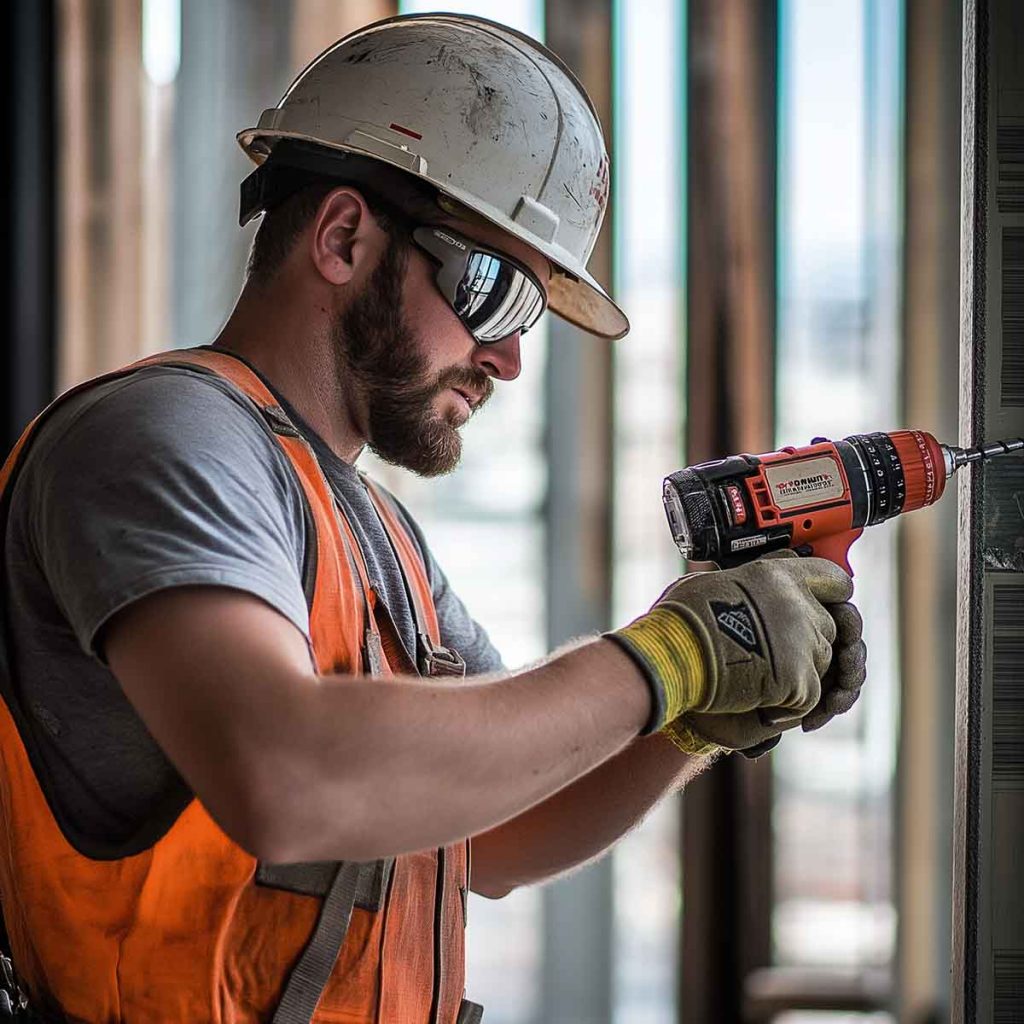If you or a loved one has been injured by a power tool on a construction site, it’s crucial to understand your legal rights and options.
Construction sites are inherently dangerous environments, and power tools are among the most common culprits of workplace injuries. While these tools are essential for getting the job done, their misuse or malfunction can lead to severe injuries, ranging from lacerations and burns to amputations or even fatal accidents.
At the Law Office of James M. Hoffmann, we are committed to helping injured workers in Missouri navigate the complexities of workers’ compensation and other legal remedies.
FREE CONSULTATION

30 YEARS EXPERIENCE
OVER $100 MILLION COLLECTED
ONLY WORK COMP
This is the lawyer you want to hire! Just read the reviews. It is all true. Incredible! He will get you every dollar of lost wages, get you every ounce of medical treatment, and get you the highest possible award from the Division of Workers Compensation.
These reviews are correct. This attorney is incredible. He knows workmans compensation, fights for denied treatment and wages, and gets your on the job injury rated by the best doctors. I will be using him from here on our great experience.
The Law Office of James M Hoffmann was referred to me from a previous client, that was extremely impressed, with his service and outcome.
I met with Jim Hoffmann to discuss a car accident. Three cars were involved, my car was totaled, and I was seriously injured. After meeting with Jim the very first time, I immediately felt comfortable, and knew that he would have my back, and would fight for me.
Throughout my journey, I dealt with a lot of pain and several issues that lasted for years. During this time I had to contact Jim and Jamie (Jim’s wonderful assistant) many times. Every time I sent an email with questions, I received feedback extremely quickly!
I feel Jim negotiated a great settlement for me!
The Law Office of James Hoffman will be the first place I contact if I ever need his help again!
Suzanne Charles
Compensation? Get this lawyer. Simply better than all the rest.
Common Causes of Power Tool Injuries
Power tool injuries often result from the following:
- Defective Equipment: Tools with design flaws or manufacturing defects can malfunction, putting workers at risk.
- Improper Training: Employers are responsible for ensuring workers are adequately trained to use tools safely.
- Lack of Maintenance: Neglecting to maintain and inspect power tools properly can lead to dangerous malfunctions.
- Failure to Follow Safety Protocols: Employers who disregard OSHA regulations or fail to provide appropriate protective equipment can expose workers to unnecessary risks.
Third-Party Claims for Power Tool Injuries
In some cases, you may be able to file a third-party claim in addition to your workers’ compensation claim. This is especially relevant if your injury was caused by:
- Defective Tools: If a power tool manufacturer produced a faulty product, you may have grounds for a product liability claim.
- Negligent Subcontractors: If another contractor’s negligence caused your injury, they could be held liable.
- Faulty Safety Equipment: If defective safety equipment contributed to your injury, you may be able to pursue a claim against the equipment’s manufacturer.
A third-party claim can provide compensation beyond what workers’ compensation offers, including damages for pain and suffering and loss of quality of life.
Steps to Take After a Power Tool Injury
- Seek Immediate Medical Attention: Your health should be your top priority. Prompt treatment also ensures your injuries are documented.
- Report the Incident: Notify your employer or supervisor about the injury as soon as possible.
- Document the Scene: Take photos of the tool, your injuries, and the surrounding area. If applicable, collect witness information.
- Preserve the Evidence: Do not attempt to repair or alter the power tool involved in the incident. It may serve as critical evidence in your case.
- Consult an Attorney: An experienced workers’ compensation attorney can guide you through the claims process and explore any third-party claims you may have.
Workers’ Compensation for Power Tool Injuries
In Missouri, most construction workers are covered by workers’ compensation insurance. If you’ve been injured on the job, you are generally entitled to:
- Medical Benefits: Coverage for necessary medical treatments, surgeries, and rehabilitation related to your injury.
- Temporary Disability Benefits: Compensation for lost wages while you recover.
- Permanent Disability Benefits: If your injury results in lasting impairment, you may be entitled to additional benefits.
- Vocational Rehabilitation: Assistance in finding alternative employment if you cannot return to your previous job.
Workers’ compensation is a no-fault system, meaning you don’t have to prove your employer was negligent to receive benefits. However, navigating the claims process can be challenging, and insurance companies may try to minimize or deny your claim.
Why Choose the Law Office of James M. Hoffmann?
For over 30 years, the Law Office of James M. Hoffmann has advocated for injured workers in St. Louis and across Missouri. Our firm is dedicated to helping you recover the maximum compensation for your injuries through workers’ compensation benefits or a third-party claim. We understand the financial and emotional toll that workplace injuries can take, and we are here to help you every step of the way.
Contact Us Now for a Free Case Evaluation
Call us any time at (314) 361-4300 or contact us online. All communications are returned promptly, so you get the help you need when you need it.

